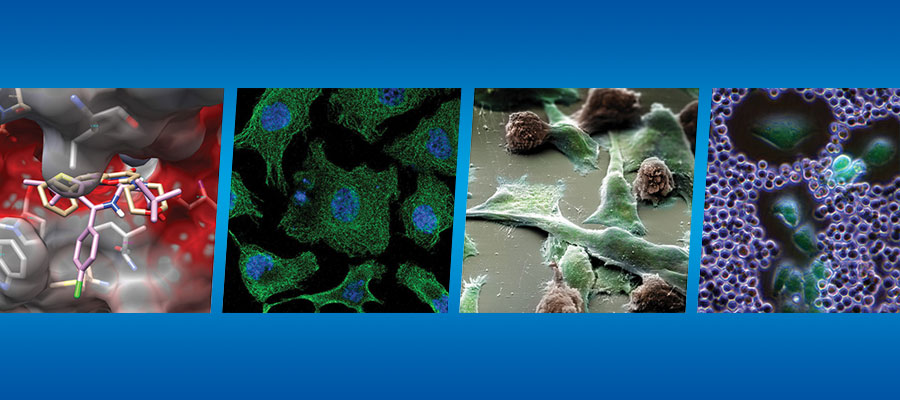Press release: AACR-NCI-EORTC International Conference
27 Oct 2017
Genetic Alteration Allowing Lung Cancers to Escape the Immune System May Occur Late in Tumor Evolution
A specific genetic alteration that could allow cancer cells to escape the immune system was detected in 40 percent of non–small cell lung cancers (NSCLCs) analyzed, according to data presented at the AACR-NCI-EORTC International Conference on Molecular Targets and Cancer Therapeutics, held Oct. 26-30. Data suggest that the alteration occurs late in tumor evolution.
Read more about Genetic alteration.
Number of Seamless Clinical Trials in Oncology Has Risen Recently
The number of early-phase trials in oncology that adopted a seamless approach, as opposed to a traditional trial approach with defined phase I, II, and III plans, is rising, with data from the majority of them presented after 2014, according to a study presented at the AACR-NCI-EORTC International Conference on Molecular Targets and Cancer Therapeutics, held Oct. 26-30.
Read more about seamless clinical trials in oncology.
Colorectal Cancers May Mutate to Escape Immune System Detection in Many Ways
Whole exome sequencing revealed that colorectal cancers with high mutational load (MSI-H) predominantly use “immunoediting” to escape immune surveillance while colorectal cancers with low mutational load (MSS) use oncogenic signaling to escape from the immune response, according to data presented at the AACR-NCI-EORTC International Conference on Molecular Targets and Cancer Therapeutics, held Oct. 26-30. The data suggest that promoting immune-cell infiltration into MSS colorectal tumors by blocking certain cancer genes could potentially make them respond to immunotherapies.
Read more about colorectal cancers.
New Colorectal Cancer Test Could Detect Early Cancer-causing Genetic Biomarkers with High Degree of Sensitivity
An investigational test that screens for colorectal cancer could detect genetic mutations that are indicative of the disease with a high degree of sensitivity and specificity, according to results of a study presented at the AACR-NCI-EORTC International Conference on Molecular Targets and Cancer Therapeutics, held Oct. 26-30.
Read more about new colorectal cancer test.
A Non-invasive Computational Imaging Approach May Help Predict Response to Immunotherapy
A computational imaging-based signature of immune-cell infiltration in and around a tumor could predict patients’ responses to treatment with anti-PD1/PDL1 immunotherapies, according to data from a study presented at the AACR-NCI-EORTC International Conference on Molecular Targets and Cancer Therapeutics, held Oct. 26-30.
Read more about non-invasive computational imaging approach.
Related News
EORTC: Advancing research and treatment for rare cancers
29 Feb 2024
EORTC Fellowship Programme: celebrating more than 20 years of impactful collaboration
22 Feb 2024
Appointment of Malte Peters as EORTC Strategic Alliance Officer
9 Feb 2024
Unique series of workshops in partnership with the European Medicines Agency (EMA)
7 Feb 2024
EORTC launches a prominent clinical trial in older patients with locally advanced (LA) HNSCC (Head and Neck Squamous Cell Carcinoma)
14 Dec 2023
Seven IMMUcan abstracts selected for ESMO Immuno-Oncology Congress 2023
6 Dec 2023
EORTC Quality of Life measures integrated in CDISC
20 Nov 2023
EORTC and Immunocore are collaborating to launch the ATOM clinical trial of tebentafusp in Adjuvant Uveal Melanoma
7 Nov 2023
Treatment with decitabine resulted in a similar survival and fewer adverse events compared with conventional chemotherapy in older fit patients with acute myeloid leukaemia
31 Oct 2023
New results and forthcoming EORTC trials in rare cancers, lung, head and neck, and breast carcinomas presented at ESMO 2023
20 Oct 2023


